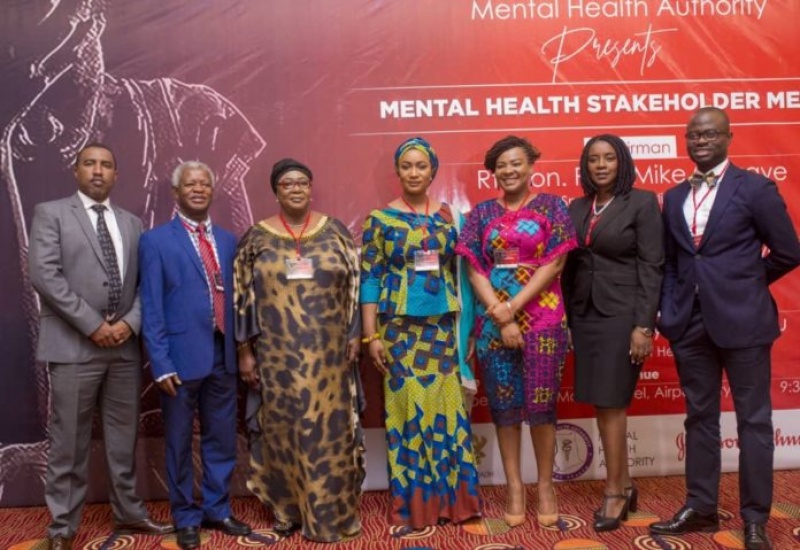
Johnson & Johnson, the multinational medical devices, pharmaceutical and consumer packaged goods manufacturing company, has reiterated its commitment to work with the government and other stakeholders to change the trajectory of mental health prevention, treatment and care in Ghana and the region at large.
Speaking at a mental health stakeholder meeting in Accra, Priscilla Owusu-Sekyere, the Country Manager of Johnson & Johnson, said the company already leads and sponsors several programmes in Ghana that are focused on building professional capacity, strengthening health systems and providing care to neglected or vulnerable patient communities.
“We are delighted to add our contribution to this important cause and build on our extensive experience supporting those impacted by mental illness by bringing transformational mental health innovations to positively impact people’s lives,” she said, on the topic, ‘leaving no patient behind; success through deliberate partnerships.’
Ms. Owusu-Sekyere added that the meeting is an effort to create increased visibility and social awareness of mental health illnesses and rally nationwide support for immediate action to better treat and care for people living with mental disorders. “This stakeholder meeting is aimed at catalysing actions that will promote and improve mental healthcare in the country.”
There were presentations on various topics by Dr. Akwasi Osei, CEO of the Mental Health Authority; Dr. Frank Banning, Medical Director, Pantang Psychiatric Hospital; Peter Yaro, Executive Director, Basic Needs; and Anthony Gitau, Director of Global Community Impact, SSA for Johnson & Johnson.
Ms. Bawumia, called for a collaborative effort to tackle mental health issues. “Mental illness can affect anyone. People pretend they are okay. Families and friends turn a blind eye. It is attributed to all sorts of superstition or they are in denial, probably in fear of stigmatisation, until it is too late,” she said.
Mental health, she said, was not only a challenge for those who suffer from mental illness but also their dependants and the society at large. “We cannot be unconcerned and we need to act now. As a nation, it is imperative that we make mental health care a priority,” she stressed, and called for awareness creation on mental health and care.
Speaking on the state of mental health in Ghana, Dr. Osei, called for the speedy passage of the LI. He pointed out that about 41percent of Ghanaians had one form of psychological distress or another, which contributed to seven percent GDP loss. “Mental illness reduces lifespan by as much as 12 to 20 years and the high suicide rate of 1,500 deaths per year can be attributed to one mental disorder or another,” he said.
Dr. Osei also pointed out that many social vices and heinous crimes were committed by people with mental issues. “The recent explosion of tramadol abuse is a mental health issue. 40percent of all cases at any general hospital have some relationship with mental health problem. There are over 300 types of mental illnesses,” he said.
He called for the reconstitution of the governing council of the mental health board, as there had not been one in place in the past two years. Additionally, Dr Osei called for the establishment of a mental health levy and the appointment of district mental health coordinators. “We have no funds to operate with. Only 0.4 to 1percent of the health budget comes to mental health care, which is grossly inadequate,” he complained.
The speaker of Parliament, Professor Mike Oquaye, in a speech read on his behalf, also assured stakeholders in mental health care that the house will work towards the passage of the Legislative Instrument (LI) on Ghana’s Mental Health Act.
He said it was unfortunate that the LI had not been passed for five years, particularly so when its passage would help the Mental Health Authority operate efficiently.
Ghana’s Mental Health Bill was passed by Parliament into law in 2012 (Mental Health Act 2012 (Act 846) but lacks the necessary LI for its smooth implementation to help remove human rights barriers associated with the treatment and upkeep of persons with mental illness.
Source : thebftonline.com

































